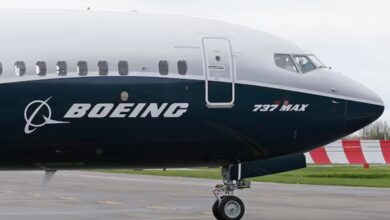Döner Kebab prices are rising significantly – inflation hits snack bars

High energy and food prices do not stop at the snack bar industry either. Operators are forced to pass some of the costs on to their customers. For example, the kebab prices in Berlin continue to rise.
Whether fries, doner kebabs or burgers – life is also becoming more expensive at snack bars. Five euros for a doner kebab is now not uncommon, even in Berlin, and snack chains are increasing their prices. Food or drinks to take away, consumption in fast food restaurants – according to data from the Federal Statistical Office, this was around six percent more expensive in March than a year ago. The costs are still running away from the companies, according to the kebab industry. Burger chains and restaurateurs are hardly better off.
“A doner kebab should actually cost 7.30 euros,” said Gürsel Ülber, chairman of the board of the Association of Turkish Doner Kebab Manufacturers in Europe, the German Press Agency. For a long time, dumplings with sauce, salad and meat were usually priced around 3.50 euros in the capital. Now it is between five and six euros – a level that customers in Bavaria and Baden-Württemberg are already familiar with, as Ülber explained. He expects further price increases.
From Berlin to Bavaria: The snack bar industry is groaning under high energy and food prices
Nationwide, the snack bar industry is hit by the rising prices for energy and food. “Energy costs such as electricity and natural gas are a major price driver, with other raw materials such as beef, the price increase of 50 percent was sometimes even greater,” says the Federal Association of System Gastronomy, which represents chains such as Burger King and Nordsee. Grain, flour, vegetables – companies have to pay more for everything.
“Due to long-term contractual relationships, some of the price increases can be cushioned,” explained Andrea Belegante, general manager of the association. “The current price development, however, makes it necessary to check the prices of the individual products carefully.” Belegante spoke out in favor of extending the VAT reduction on food indefinitely and also favoring drinks.
French fries are still everywhere, as the German Hotel and Restaurant Association in Bavaria emphasizes. But innkeepers are having increasing difficulties getting vegetable oil. “Prices have risen immensely,” said state manager Thomas Geppert.
No relief for companies in sight
According to a survey from last week, almost two thirds of the companies in the Free State complained about delivery bottlenecks. These almost always related to vegetable oil, and in every second case also to flour. “No one could have expected something like this to happen after the pandemic,” said Geppert. The companies would have to calculate their prices accordingly.
Kebab producer Ülber said: “Because of the competition, it’s difficult to pass on the prices in full.” He pays significantly more at the slaughterhouses and cutting plants. If he sells his skewers to the snack bars at a correspondingly higher price, they may prefer to buy from other suppliers.
“The situation has been very difficult for about six months,” said Ülber, describing the situation in the industry. Many companies were no longer making a profit. Ülber thinks it’s possible that the first doner kebab shops will have to give up in two to three months. For the others, the costs continued to rise by autumn at the latest – due to the increase in the minimum wage to twelve euros per hour.

